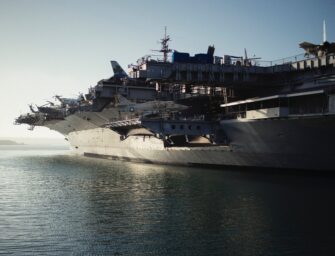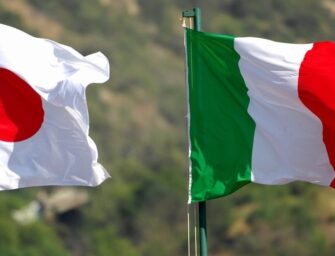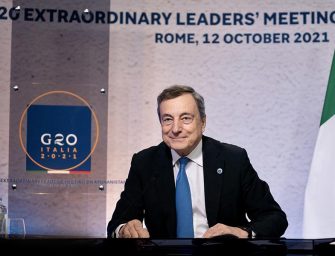Italy and Japan: seeking a role in the global arena
by Andrea Molle
For some time now, Italy and Japan have started to entertain the idea of increased bilateral cooperation in the areas of defense and security in the Indo-Pacific. Such a trend had emerged fairly recently with Japan’s participation in the Global Combat Air Program, the rebranded Tempest fighter initiative spearheaded by the United Kingdom and the two countries. However, that only seems to have gained momentum in the last few weeks. The relaunch of joint military exercises between the Italian Navy and the Japanese Self-Defense Maritime Force after roughly 20 years of hiatus is a clear sign of the commitment that both countries are putting into forging a robust strategic partnership. For example, at the end of the last month, the Italian Navy sent its new Paolo Thaon di Revel-class offshore patrol vessel “Francesco Morosini” for a five-month deployment in the region during which it was stationed at the Japanese naval base of Yokosuka, where she was involved in operational and logistical activities with their Japanese counterparts, perhaps in preparation of an increasingly likely future integration between the two Navies with regards to deployment, maintenance, and repairing cycles.
Furthermore, as mentioned a few days ago by the Chief of Staff of the JMSDF, Admiral Sakai, the two countries have launched a broad cooperation program for the F-35B STOVL multi-role fighter. Rome has now committed to acquiring up to 60 F-35A CTOL, the conventional landing and take-off variant intended for the Air Force, and 30 F-35B STOVL, the vertical take-off and landing variant designed for the Navy. Tokyo plans to acquire up to 105 F-35A CTOL and 42 F-35B STOVL, which will likely be assigned to the newly refurbished Izumo-class light aircraft carriers. On the other hand, Italy intends to deploy its F-35B STOVL contingent on the flight decks of its flagship Cavour, which is expected to sail the Pacific between late 2023 and early 2024, and her sister aircraft carrier Trieste. Ensuring the interoperability of the two navies would bring a tremendous operational advantage in terms of deployment, maintenance, and scheduled rotation of naval and aerial assets, thus increasing their readiness and deterrence capacity in the Indo-pacific.
Traditionally limited to the Mediterranean Sea, the renewed strategic interest of Italy in Asia is perfectly consistent with the NATO doctrine that defines the security of Europe as dependent from that of East Asia and is viewed with favor both by the two leading powers in the region: the United States and the United Kingdom. Such enhanced cooperation, especially lobbied by London, was also just recently officialized by a recent MoU signed by the Prime Ministers of Japan, Fumio Kishida, and Italy, Giorgia Meloni, that raised the countries’ bilateral cooperation to the level of strategic partnership, thereby creating a permanent consultation mechanism in the domains of foreign and defense policy issues. The new era of cooperation between Tokyo and Rome is also welcomed by Italy’s Defense Minister Guido Crosetto, who, on the sidelines of the recent trilateral meeting with his British and Japanese counterparts, committed the country to explore paths of integration in the cyber-defense, intelligence and training initiatives, and of course, to created joint-ventures in defense R&D.
While Rome seeks to carve for itself a place in the Indo-Pacific, perhaps even at the expenses of other European partners, to match its renewed commitment in North Africa and the Middle East, Tokyo appears to be willing to expand its network of security partners, surely to counterbalance the growth of China but also to reduce its dependence on the United States. Japan is diversifying its defense technology portfolio, up to now almost completely aligned to Washington’s interests, while at the same time presenting itself to the White House as the essential actor to stabilize the Indo-Pacific and keep China at bay.
As for Italy, the current administration appreciates that investing in the region is mandatory within the changing international political framework to preserve the country’s national interest.
























